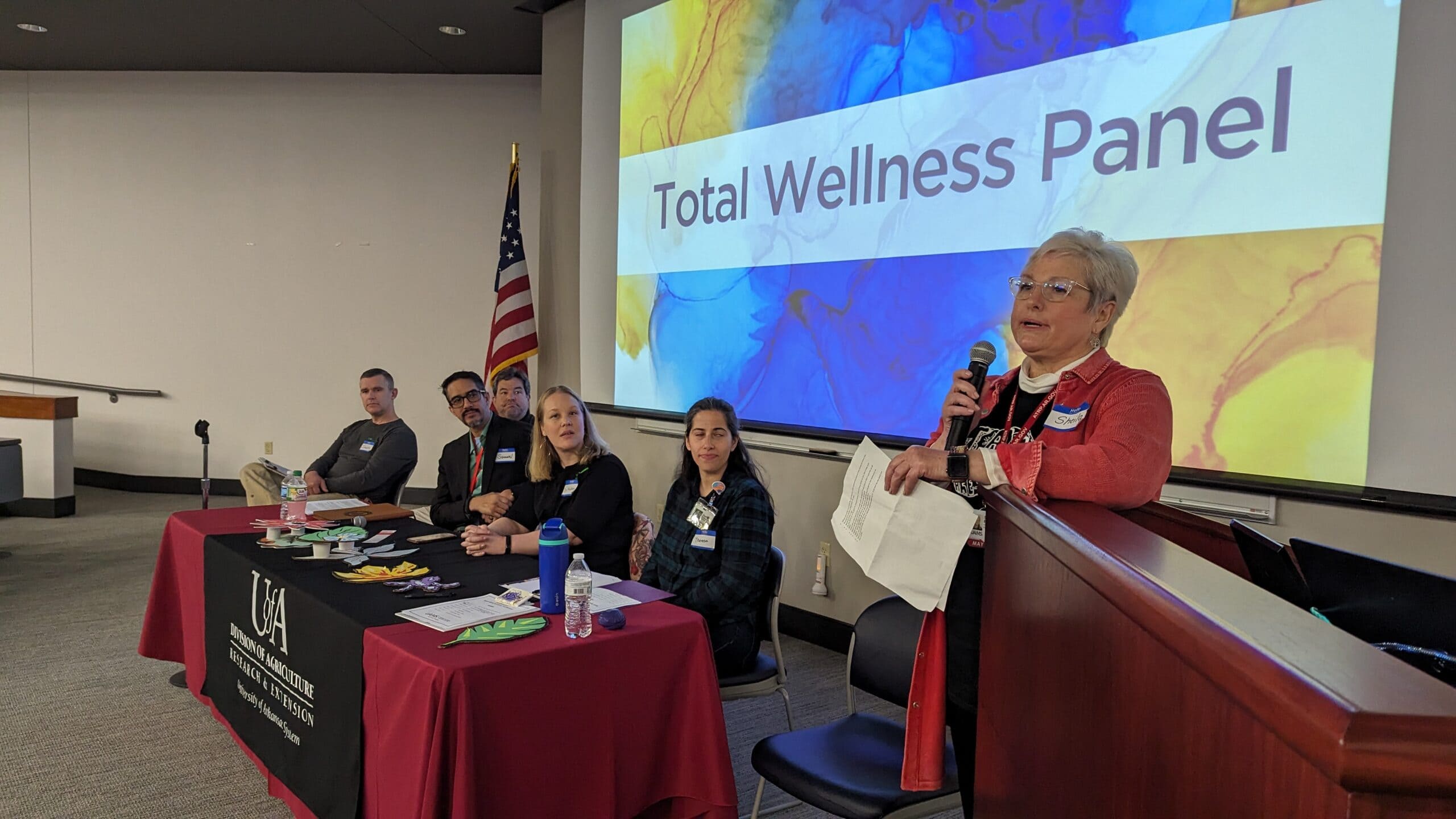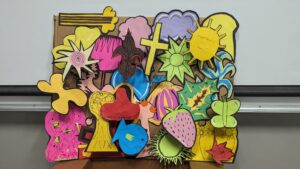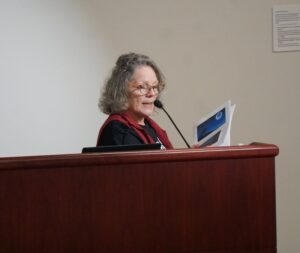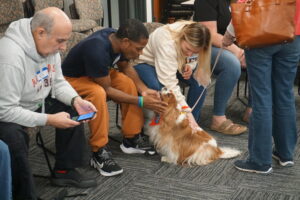View Larger Image

Sheila Beck, MSPT, CBIS, speaks as part of a total wellness panel during the 2024 Arkansas Brain Injury Survivors' Conference held March 1. More than 60 people attended the event from across the state.
Image by Kristen Alexander
Annual Brain Injury Conference Focuses on Support, Education for Survivors
| More than 60 people attended this year’s 2024 Arkansas Brain Injury Survivors’ Conference on March 1, gathering in person for the first time since 2019.
The annual conference, held this year at the University of Arkansas Division of Agriculture Cooperative Extension Service State Office in Little Rock, is the only event of its kind in the state for brain injury survivors.
Backed by the Brain Injury Program, Administration for Community Living TBI State Partnership Program and the Arkansas Department of Health, the annual conference is a free educational event for Arkansans living with brain injury, as well as their family members, friends and caregivers.

Survivors worked together on an art piece called “Community Created” to close the program.Kristen Alexander
Kristen Alexander, MPH, MPS, a program manager with the Brain Injury Program, emphasized the need for support and education on brain injuries and recovery. More than 350 Arkansans each year survive moderate to severe traumatic brain injuries, with more surviving minor ones.
“Anyone could have a brain injury tomorrow,” Alexander said. “You never know when it’s coming, and no one’s ever prepared for it. There are people walking among us who have a brain injury. It’s an invisible disability that has a huge lack of awareness. We need to understand that the walking wounded are among us all the time.”
The atmosphere was warm and inviting. Attendees hugged and chatted while perusing a “survivor showcase” of tables displaying craft and hobby items shared by survivors. The collection included World War II memorabilia, handmade knit caps and homemade guitars.
After Alexander gave the welcome, attendees participated in guided chair yoga exercises, stretching their arms and heads around in their seats. Clinical psychologist Ming Hwei Yek, Psy.D., an assistant professor of psychiatry in the UAMS College of Medicine, gave a presentation on how proper sleep habits can help alleviate traumatic brain injury, or TBI, symptoms such as fatigue.
Next, brain injury survivors gathered at the stage and shared personal stories about their injury, diagnosis and recovery.

Carol Ann Collier described her experience of living with a TBI. Multiple survivors shared their stories with the audience as part of a midday panel.Benjamin Waldrum
Carol Ann Collier, 60, of Crossett, was living in Edmond, Oklahoma, in 2010 and driving to church when her car was struck on the driver’s side by another car going through an intersection. Her extensive injuries included two fractured vertebrae in her cervical spine.
Collier said her recovery at the hospital was difficult, but she was determined to go home. She shocked everyone at her first physical therapy appointment, using a walker to move down the hallway and back. Doctors released her but said she would still need physical therapy for a while.
“I said, yeah, I know that — a wheelbarrow and a shovel,” Collier said.
Back home, Collier used every available tool to help her mind and body heal, including taking a coding class at a local community college. It wasn’t until years later, following another car accident and misdiagnosis, that a follow-up MRI confirmed she had a traumatic brain injury.
Today, Collier tries to eat well, exercise regularly and keep stress low. She credits her faith, her family and the Brain Injury Program with helping her in recovery.
“I’m extremely grateful for the UAMS support group, with all the wonderful, intelligent people who give their time and energy to TBI survivors,” Collier said. “They work very hard to support us in every way possible, and their efforts have made a huge difference in my life, giving my sons the freedom to live their lives as well.”
Constance Tullis, 39, of Little Rock is a social worker with the UAMS Brain Injury Program since 2023 and a survivor herself. When she was younger, she struggled with alcohol and drug abuse. In 2011, she survived a gunshot to the head.
“That was when I realized that my disease of alcoholism was life or death, and it actually saved me,” Tullis said. “It was the most humbling experience ever.”

Survivors Keith Handcock and Malissa Dunn pet Gracie, a five-year-old Cavalier King Charles Spaniel. Gracie was one of several therapy dogs available at the event.Benjamin Waldrum
Tullis said she was given only a 2% chance of survival, but she kept improving little by little. In 2012, she entered into a recovery program and became sober with the help of an advisor who was also a TBI survivor. She was accepted into a graduate program on her fifth try and eventually passed her social work licensing exam. She began helping with brain injury organizations across Arkansas and started volunteering for UAMS.
Tullis credited her faith and her 12-step program, as well as her doctors, brain injury organizations and many friends, with helping her along the way.
“Just work through the uncomfortable stuff,” Tullis said. “I feel like whenever you do stuff that’s uncomfortable, that’s part of your growth. Life begins at the end of your comfort zone, or my comfort zone. I feel like I’ve finally found my purpose.”
Following a catered lunch, local therapy dogs arrived for pets and pictures. Attendees worked together on an art project, “Community Created,” to close the event. Alexander said the event is like a family reunion, where people are happy to see each other again and catch up.
“People come back because they love to see everyone’s faces, but they also like to come and learn how to live better with their brain injuries,” Alexander said. “This is my favorite day of the year. I wish I could do it every month.”